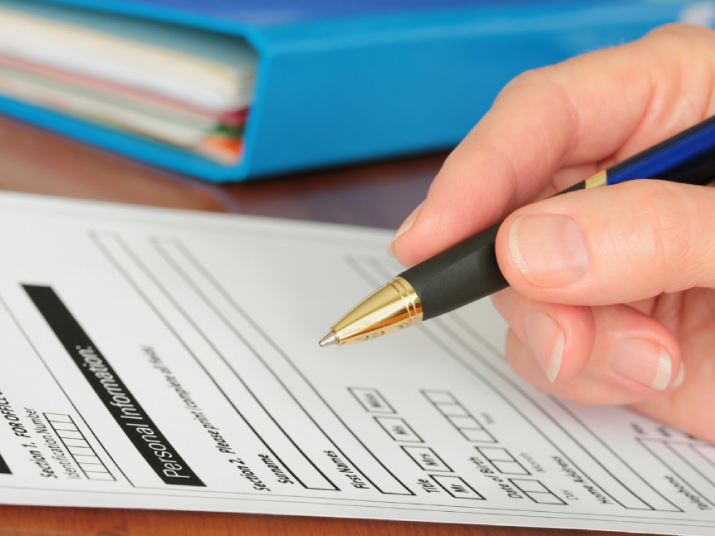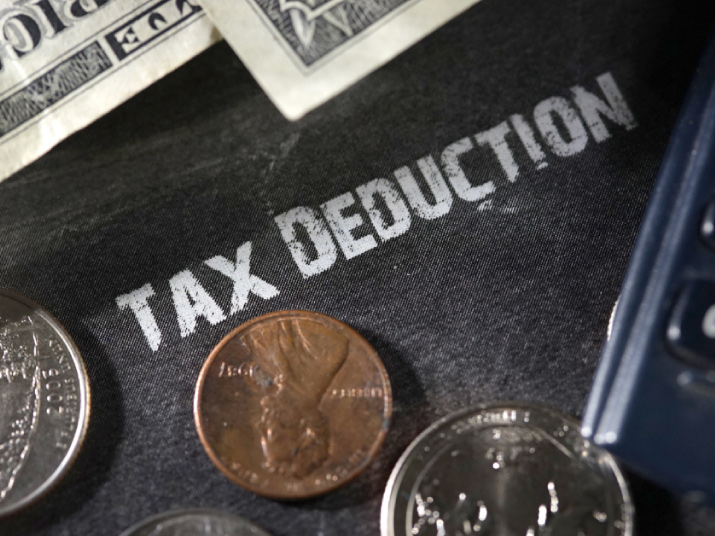Whether you file your tax return using tax software or work with a professional, a tax prep checklist will help you organize and retrieve the documents and information you’ll need to complete your tax return. Therefore, this article helps you understand the necessary documents and papers you need to file your tax to avoid typical mistakes and errors, allowing you to keep as much of your own money as possible.
Checklist You Need to Follow If You Are Filing Your Taxes Yourself
Not every category of this checklist will apply to you. However, when you are ready to file your tax return, you’ll be surprised how much time you will save by organizing your information in advance.
Remember that if you are married and filing a joint return, you will need to include the following information for your spouse as well.
The following is a list of the tax documents and information you’ll require:
Personal information

The IRS and state taxation authorities use your personal information to determine who is filing a return, how to contact you, and where to deposit your tax refund. Your personal information will include:
- Your full legal name, as it displays on your Social Security card
- Year of birth
- Social Security number
- Residential address
- A copy of state and federal tax returns from the previous year
- To receive your refund by direct deposit, you’ll need your bank account number and routing number.
Dependent information
You’ll need the following information to claim someone else as a dependent:
- Names, dates of birth, and Social Security numbers of dependents (as they appear on their Social Security cards) (or tax ID numbers)
- If the custodial parent of your dependent child is relinquishing their right to claim the child as a dependent, fill out Form 8332.
Sources of income
You may receive many different forms documenting your income. Among the most common are:
- W-2s (Wage and Tax Statements) from your company (s)
- Form 1099-G to report unemployment benefits and state or local tax refunds.
- Forms 1099-INT and 1099-DIV, to report interest, stock sales, and dividends
- Form 1099-B to report broker-handled transactions.
- Forms 1099-R and SSA-1099 to report retirement plan distributions and Social Security benefits.
- Form 1099-S to report income from your home or other property sales.
- Form 1099-MISC to report rental property income.
- Form 1099-Q to report 529 plan or Coverdell ESA distributions
- Form 1099-SA (HSA) to report distributions from a health savings account
- Schedule K-1 for a pass-through corporation, trust, or estate income.
- Alimony received (in the case you are separated or divorced, and the agreement is dated on/before December 31, 2018)
- Record of any cryptocurrency transactions.
- Other sources of income, such as gaming winnings, debt cancelation, jury duty pay, etc.
Self-employment and business records
If you are self-employed, you must disclose your income. However, you can also deduct business expenses from your gross income to reduce your taxable income.
The following are the documents and business records a self-employed person must maintain and need at the time of filing returns:
- Forms 1099-NEC or 1099-K. To report income earned as an independent contractor
- Records of business income and expenses.
- Documentation for home office expenses, including the square footage of the home and the area used only for business.
- Records for depreciating business equipment, including cost and date of installation.
- Record of business-related miles traveled
Deductions

Deductions can help you reduce your taxable income and maximize your refund by lowering your tax liability. In general, you can either take the standard deduction (a fixed amount based on your filing status) or itemize your deductions.
If you itemize your deductions, you’ll need information on the following:
- Expenses for medical care paid from pocket
- Long-term care insurance premiums that have been paid
- Any mortgage insurance premiums, mortgage interest, and charges you paid during the tax year are listed on Form 1098.
- Taxes on property
- State, local taxes, including sales tax.
- Taxes paid with the registration of your vehicle
- Charitable donations
- Documentation of casualty losses (if you owned/lived in a property situated in a federally declared disaster area)
Even if you do not itemize, if you have the following deductions, referred to as adjustments to income, you can claim them.
Below are such adjustments to income:
- Interest on student loans is reported on Form 1098-E.
- Contributions to an HSA, IRA, SEP, or self-employed retirement plan should be recorded.
- Alimony paid (for separation/divorce agreements dated on/before December 31, 2018)
- Expenses for classroom supplies that teachers paid.
- Premiums paid for self-employed health insurance
Tax credits
Tax credits reduce the amount of tax you owe on a dollar-for-dollar basis. To claim potentially essential tax credits, you’ll require the following documents:
- Child care fees and the name, address, and tax identification number of the care provider are listed on Form 1098-T.
- Costs of adoption and the Social Security number of the child you officially adopted in 2021
- If you bought health insurance through the Health Insurance Marketplace, you’d need to fill out Form 1095-A.
Estimated tax payments
You may have to make estimated tax payments if you are self-employed or earn a lot of money and don’t have federal and state income tax withheld.
To avoid paying twice, ensure you include those estimations on your tax return:
- Estimated tax payments to the IRS and state and local tax authorities made.
- Refunds from previous years are applied to the current year.
- Any amounts paid as a result of the extension
Proof of losses
Deductions are available for different types of financial losses. If any of the following losses apply to you, provide evidence of the following:
- Keep track of any stocks or other investments that have lost all value or for which you expect to file a loss claim, including the date and original purchase price.
- Non-business bad debts that are not collected (an instance of a non-business bad debt is lending money to relatives from your bank account and having them not reimburse it.)
Letters from the IRS
You may receive different notices or letters from the IRS and state tax authorities that influence this year’s return.
So when preparing your 2021 return, make sure you have these on hand:
- IP PIN or Identity Protection PIN that the IRS issues
- IRS Notice 6419 indicating the total amount of advanced Child Tax Credit payments you received
- IRS Letter 6475, IRS Notice 1444-C, or other records indicating the amount of third stimulus payment (economic impact payment (EIP))
Key Takeaway
It may take some time to gather all of this information before filing your return, but it will ensure you have everything you need to claim every tax deduction and credit.
After you submit your taxes, it’s a good idea to keep them in a safe place in case you’re audited. If the IRS or your state tax authority audits your return, they may request records to back up your income and tax benefits. In addition, having all of this information in one location can help you save time and avoid losing any deductions or credits.
With over 15 years of experience, AOTAX is the experienced team you need. We at AOTAX have taken care of the finances of numerous Indian IT professionals. We have assisted in reducing tax burdens and simplifying year-round tax preparation. So, if you’re going to trust a pro, go with AOTAX and sign up for free today!


Recent Comments